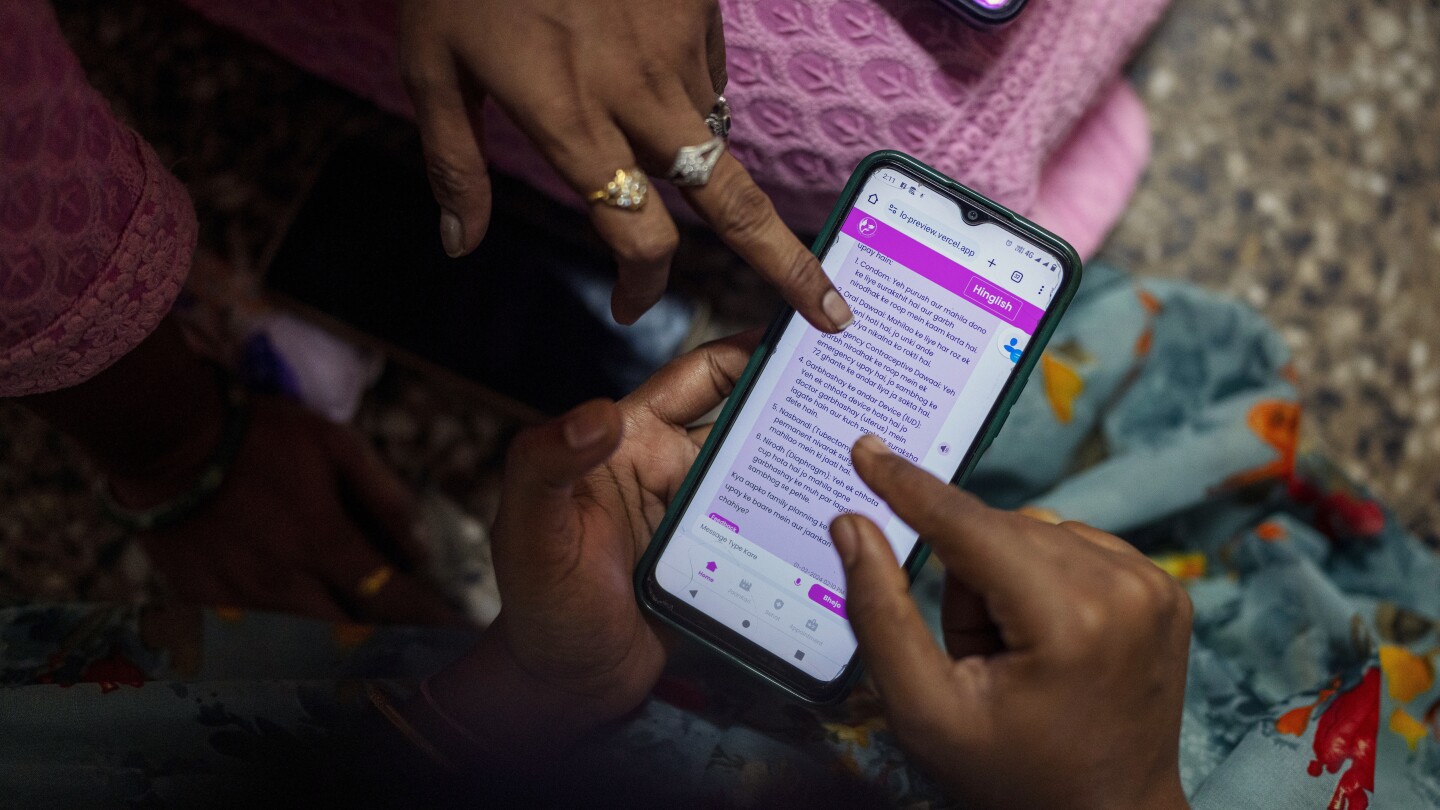NEW YORK (AP) — Komal Vilas Thatkare, a 32-year-old mother and housewife in Mumbai, expressed her struggle with accessing private health information due to the absence of female figures in her household. She shared her reliance on an AI-powered app developed by the Myna Mahila Foundation, which utilizes OpenAI’s ChatGPT model. Through interactions with the Myna Bolo chatbot, Thatkare gained insights into topics such as contraceptive pills and their usage.
Thatkare is among the 80 test users enlisted by the foundation to assist in training the chatbot. This initiative aims to leverage AI technology to provide accurate medical guidance tailored to individual queries, potentially reaching a broader audience than traditional clinics or medical professionals. The chatbot’s specialization in reproductive health addresses a critical need for information that may be challenging to access due to societal norms.
Suhani Jalota, the founder and CEO of the Myna Mahila Foundation, highlighted the transformative potential of the chatbot in offering nonjudgmental and confidential advice on sexual reproductive health. The foundation received a grant from the Bill & Melinda Gates Foundation to develop this innovative tool, aligning with a broader effort to harness AI for community problem-solving in low- and middle-income countries.
Philanthropic organizations like the Gates Foundation and Data.org are driving initiatives to bridge the gap in AI development, particularly in essential sectors such as healthcare and education. By supporting projects like the Myna Mahila Foundation’s chatbot, these funders aim to democratize access to AI resources for addressing local challenges often overlooked by commercial interests.
The Myna Mahila Foundation’s approach involves gathering real questions from users like Thatkare to refine the chatbot’s responses. By curating a database of verified inquiries and answers, the foundation enhances the chatbot’s accuracy and relevance over time. Despite ongoing improvements, challenges remain regarding response accuracy and language translation, prompting considerations for additional user training and privacy safeguards.
Dr. Christopher Longhurst, chief medical officer at UC San Diego Health, emphasized the importance of rigorous testing to evaluate the impact of AI tools on patient outcomes. While acknowledging the current limitations, Longhurst envisions a significant long-term role for AI in revolutionizing healthcare practices akin to the transformative impact of penicillin.
Collaboration with other Gates Foundation grantees and efforts to establish privacy standards for reproductive health data underscore the Myna Mahila Foundation’s commitment to ethical AI deployment. Discussions around data privacy measures, including message deletion protocols for user confidentiality, reflect the foundation’s dedication to safeguarding user information in shared device environments.
AP Technology Writer Matt O’Brien contributed from Providence, Rhode Island.
Associated Press coverage of










